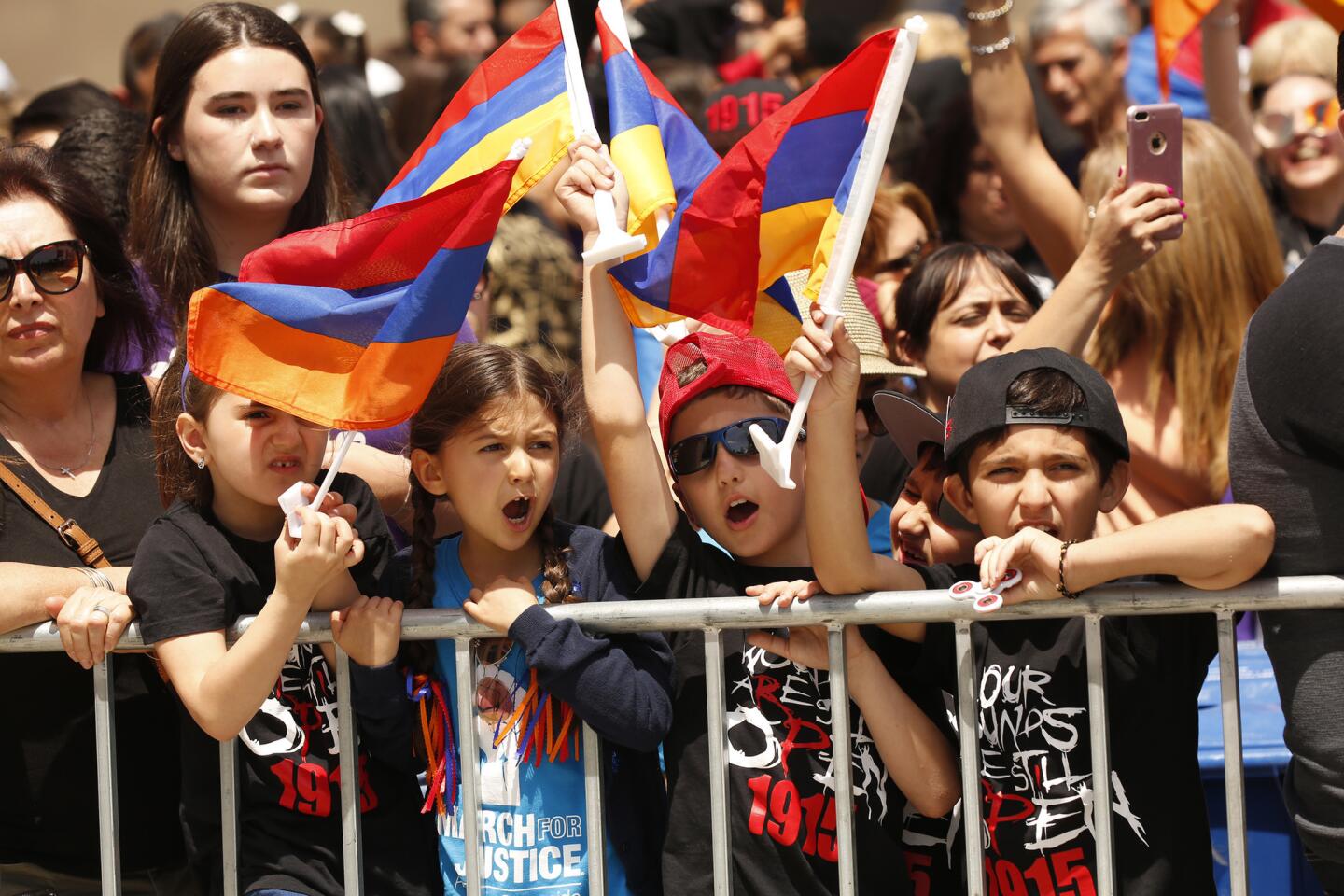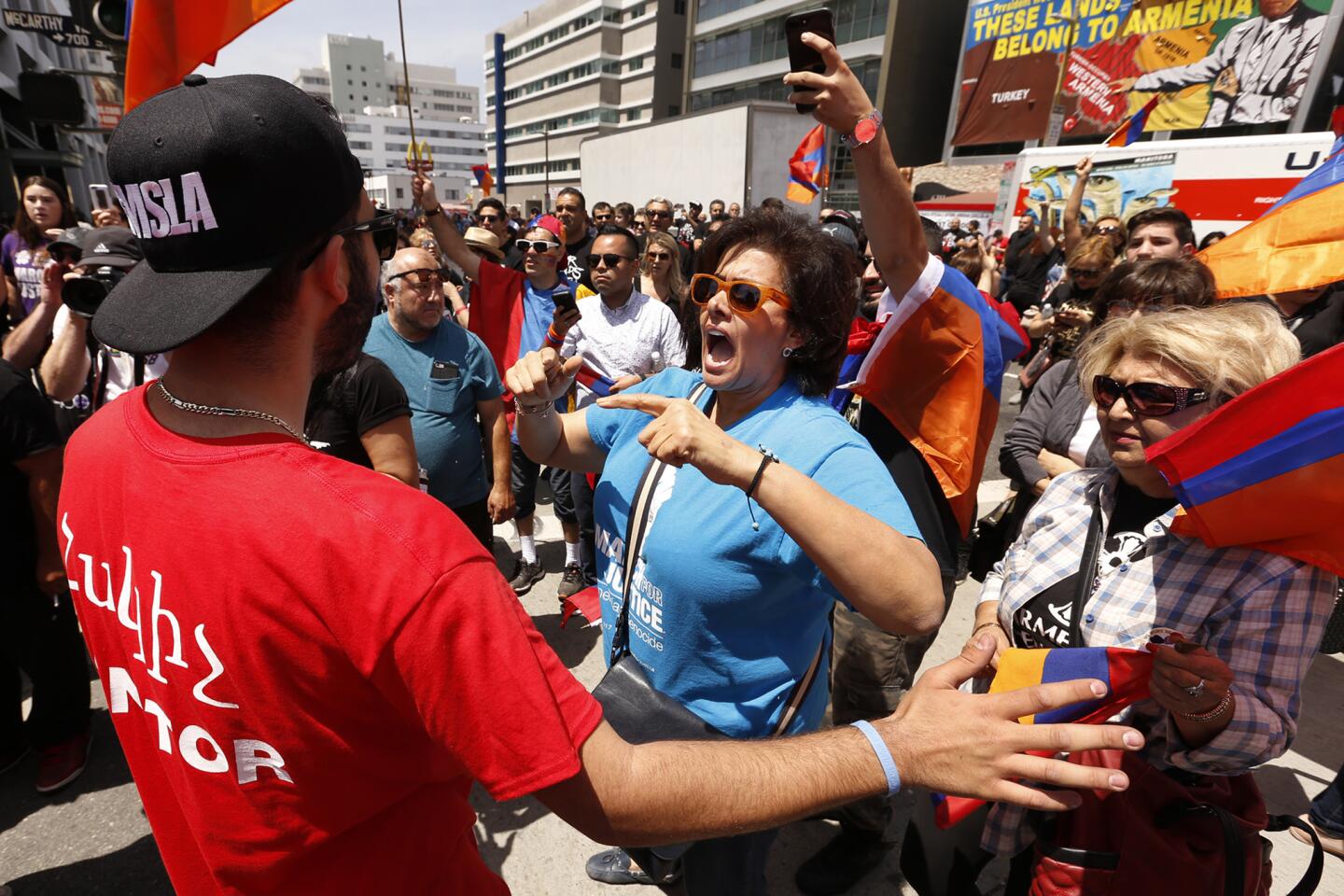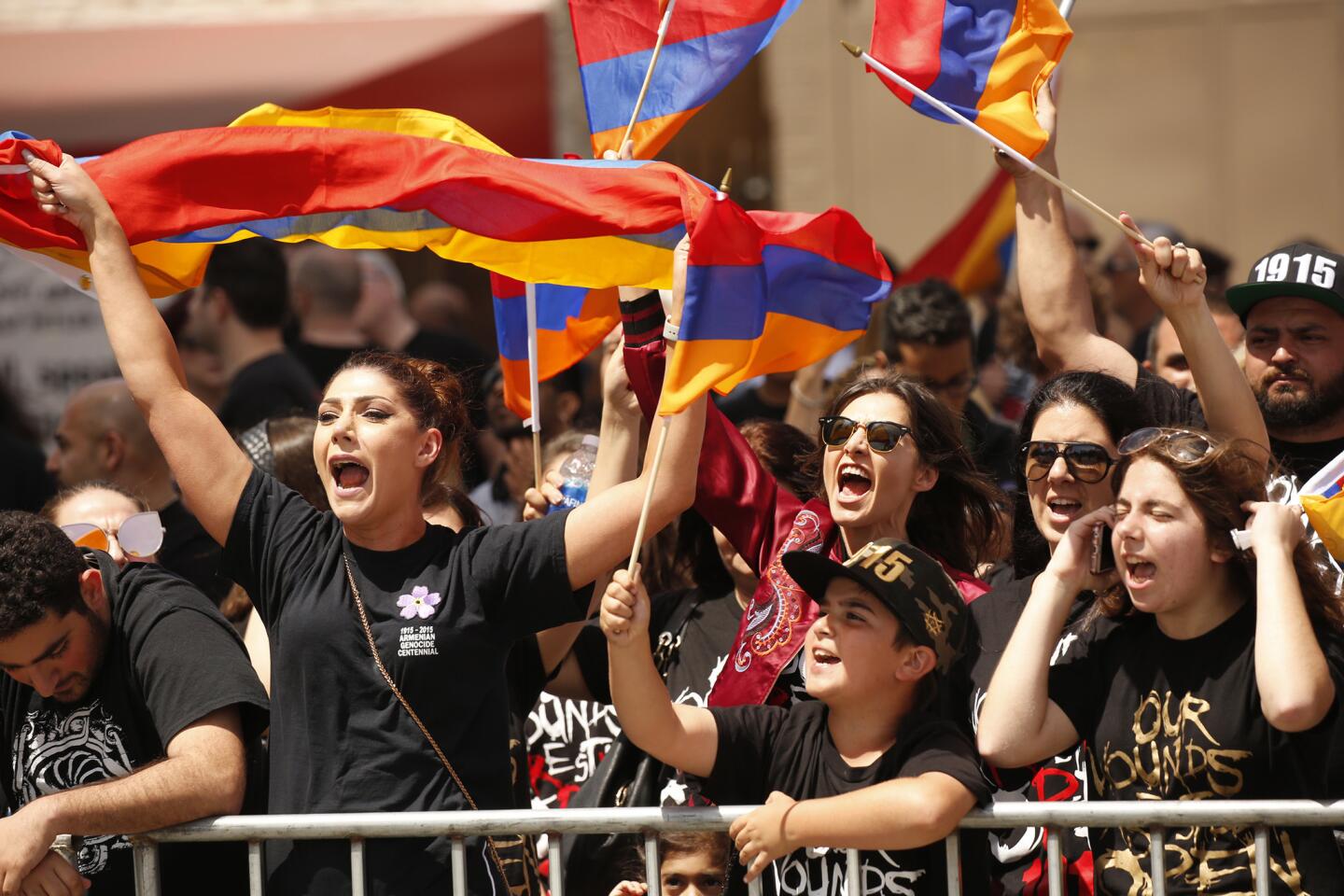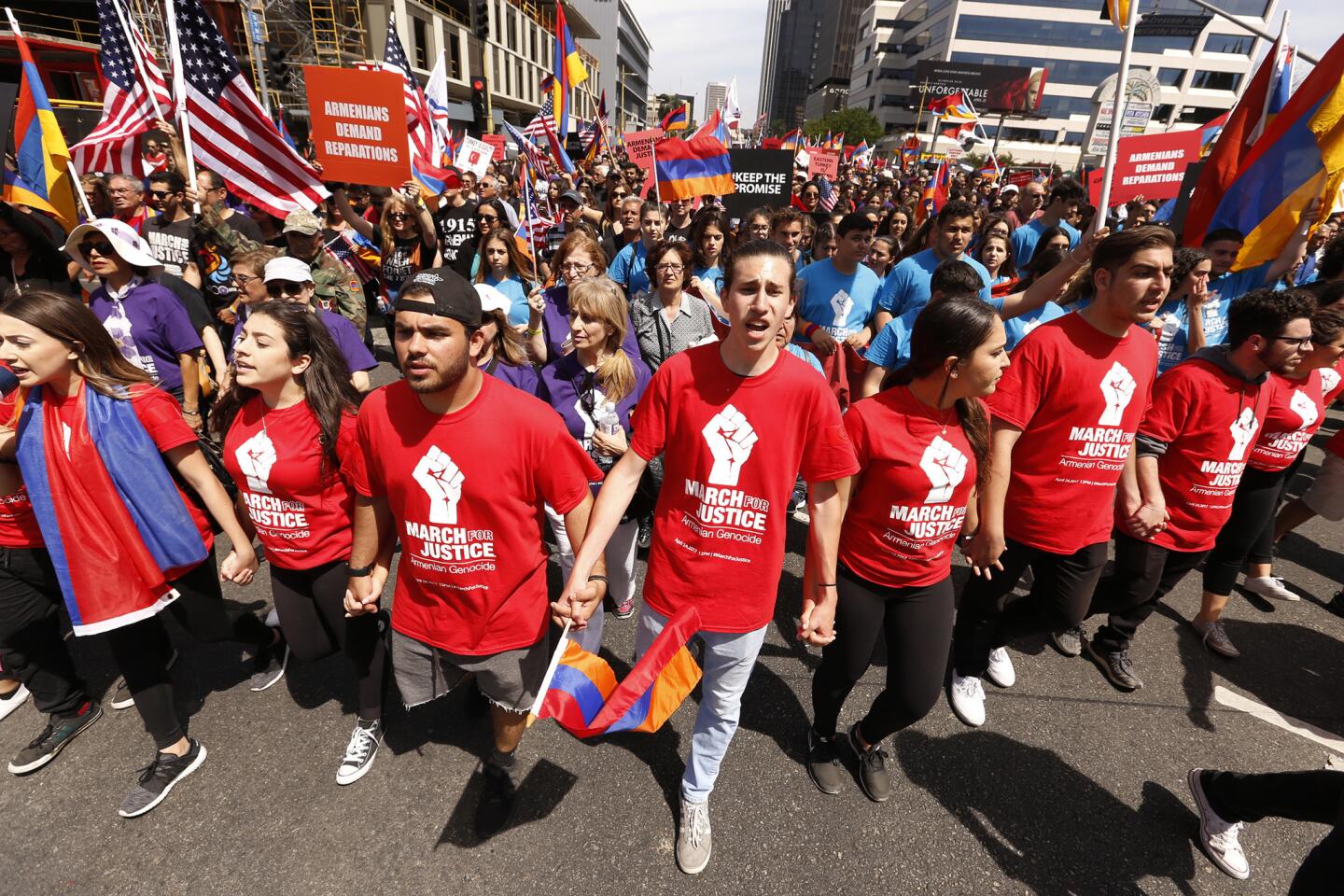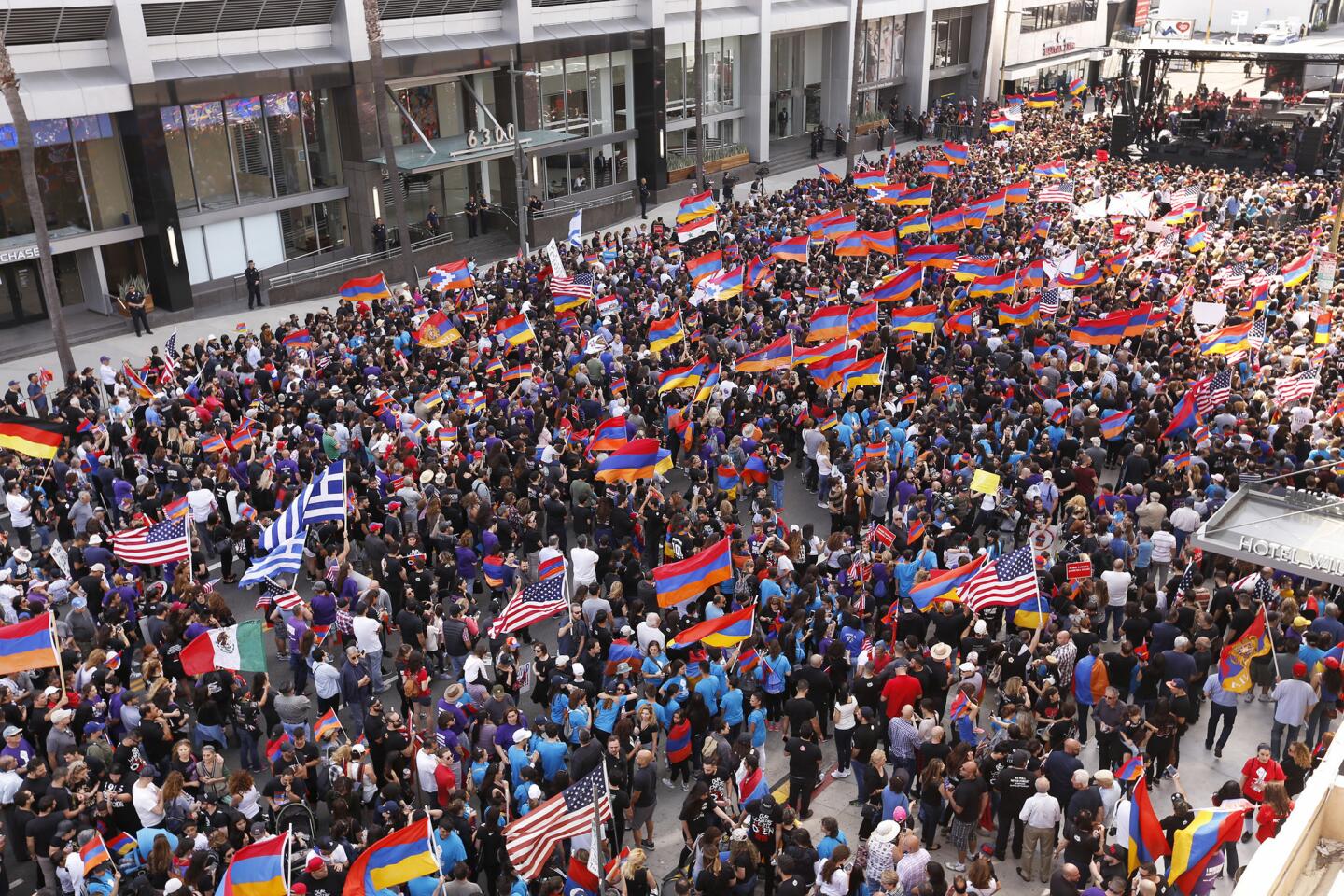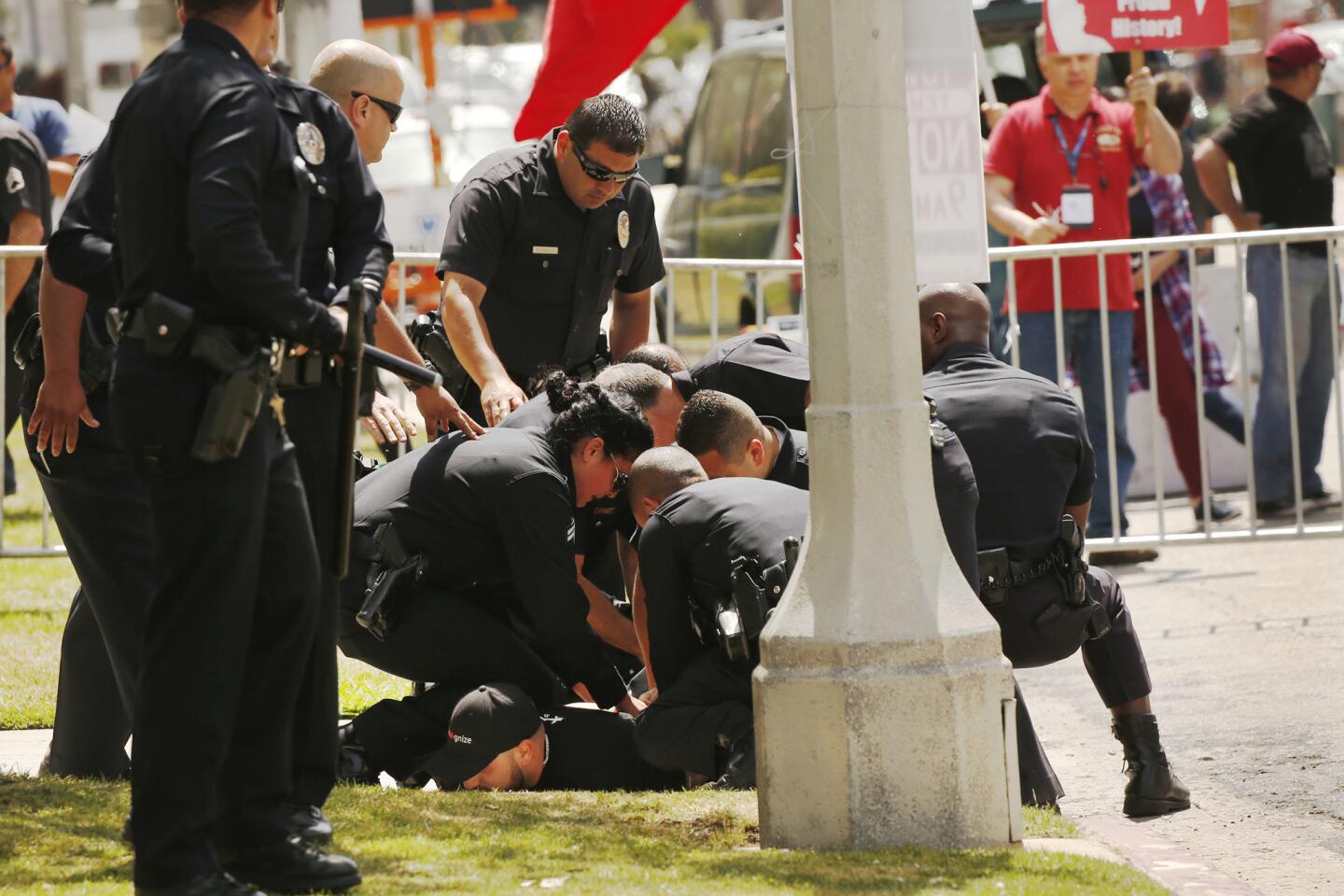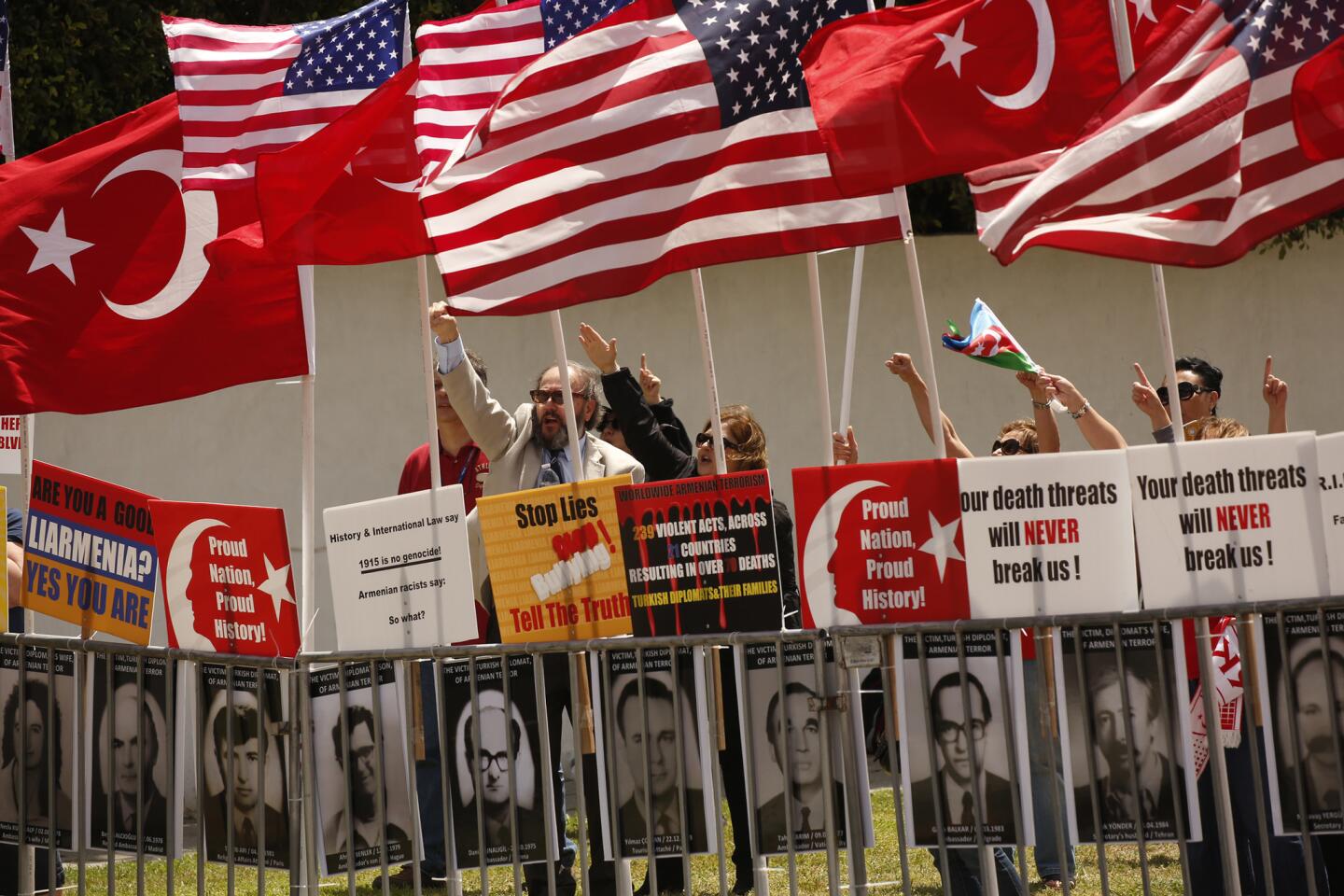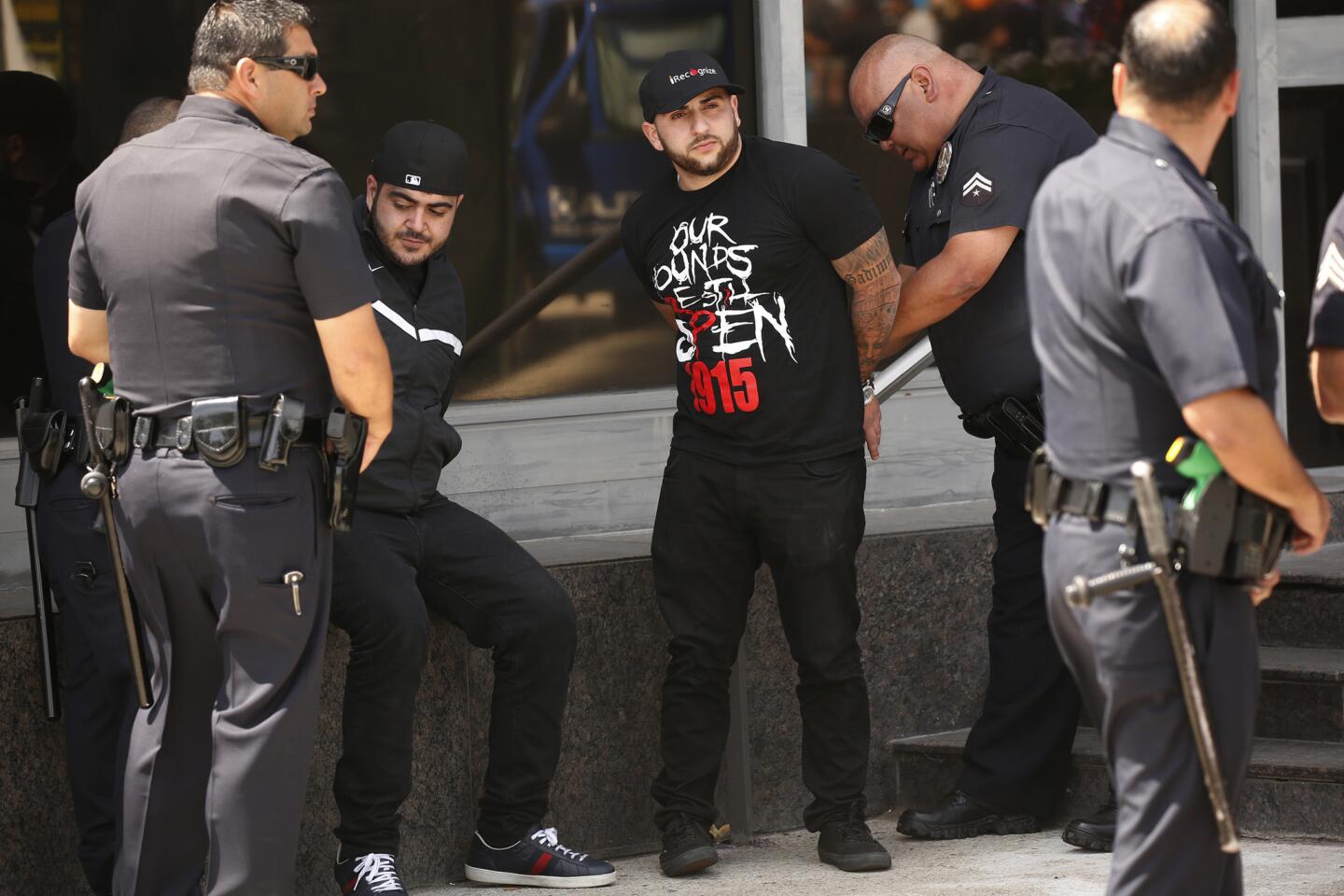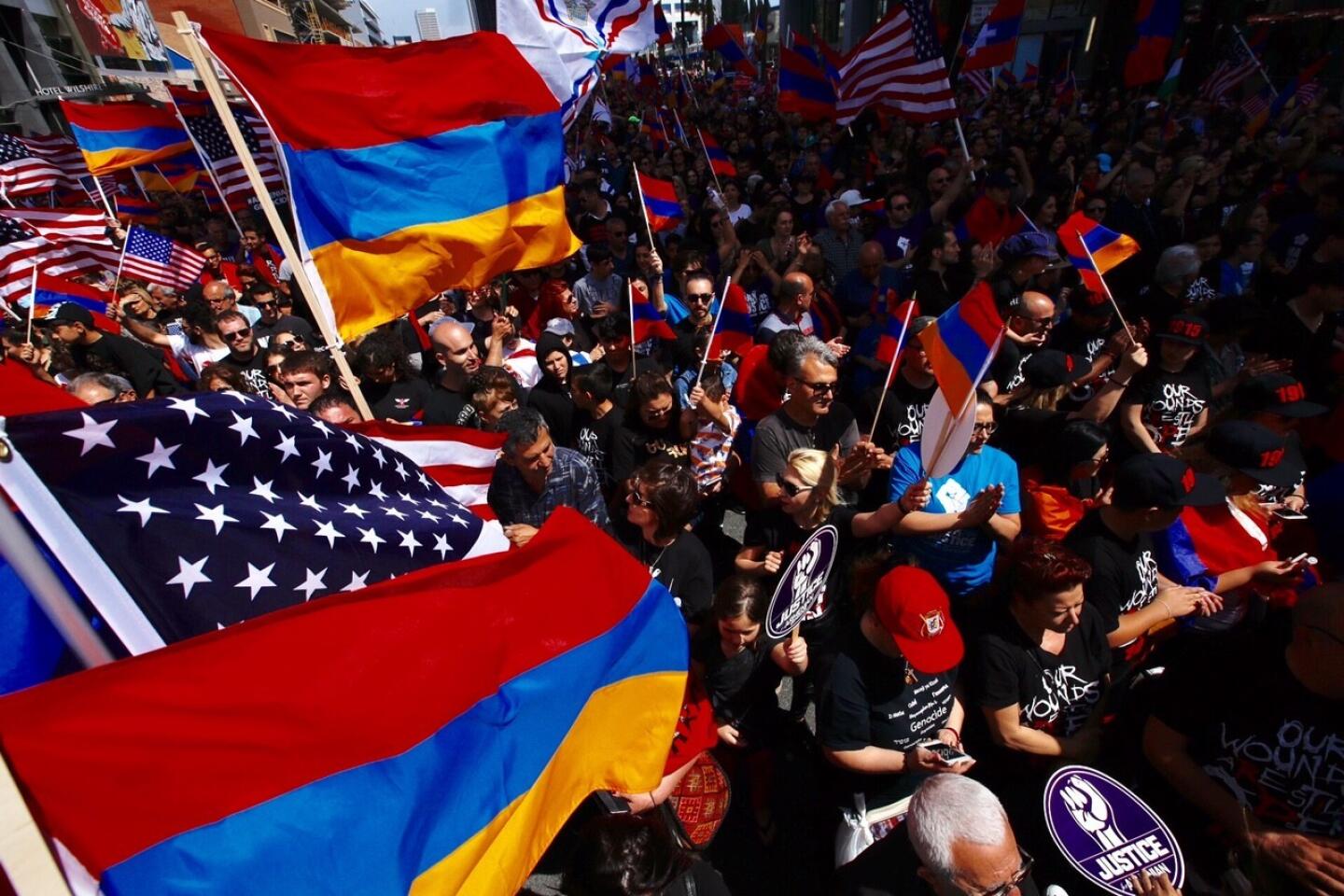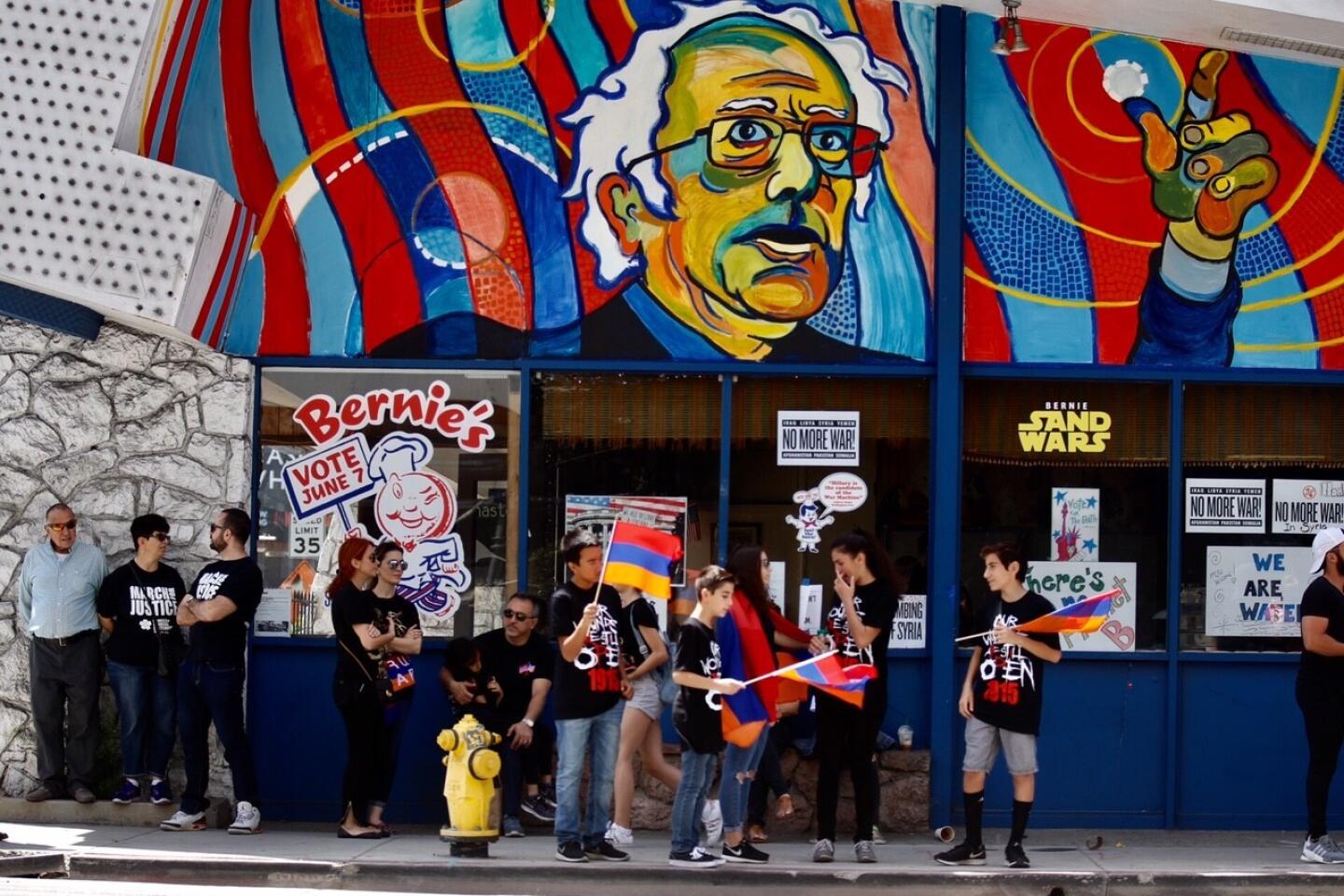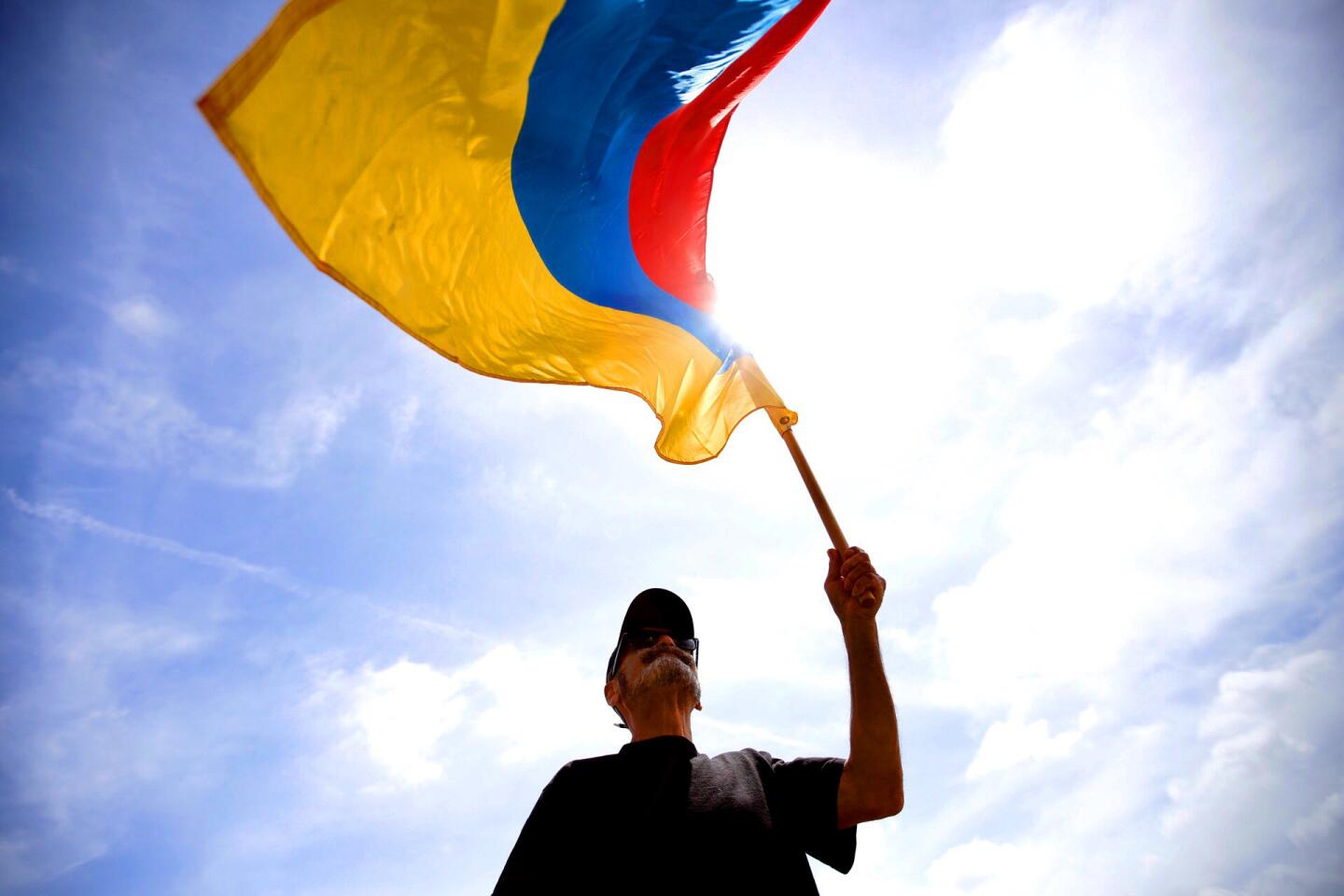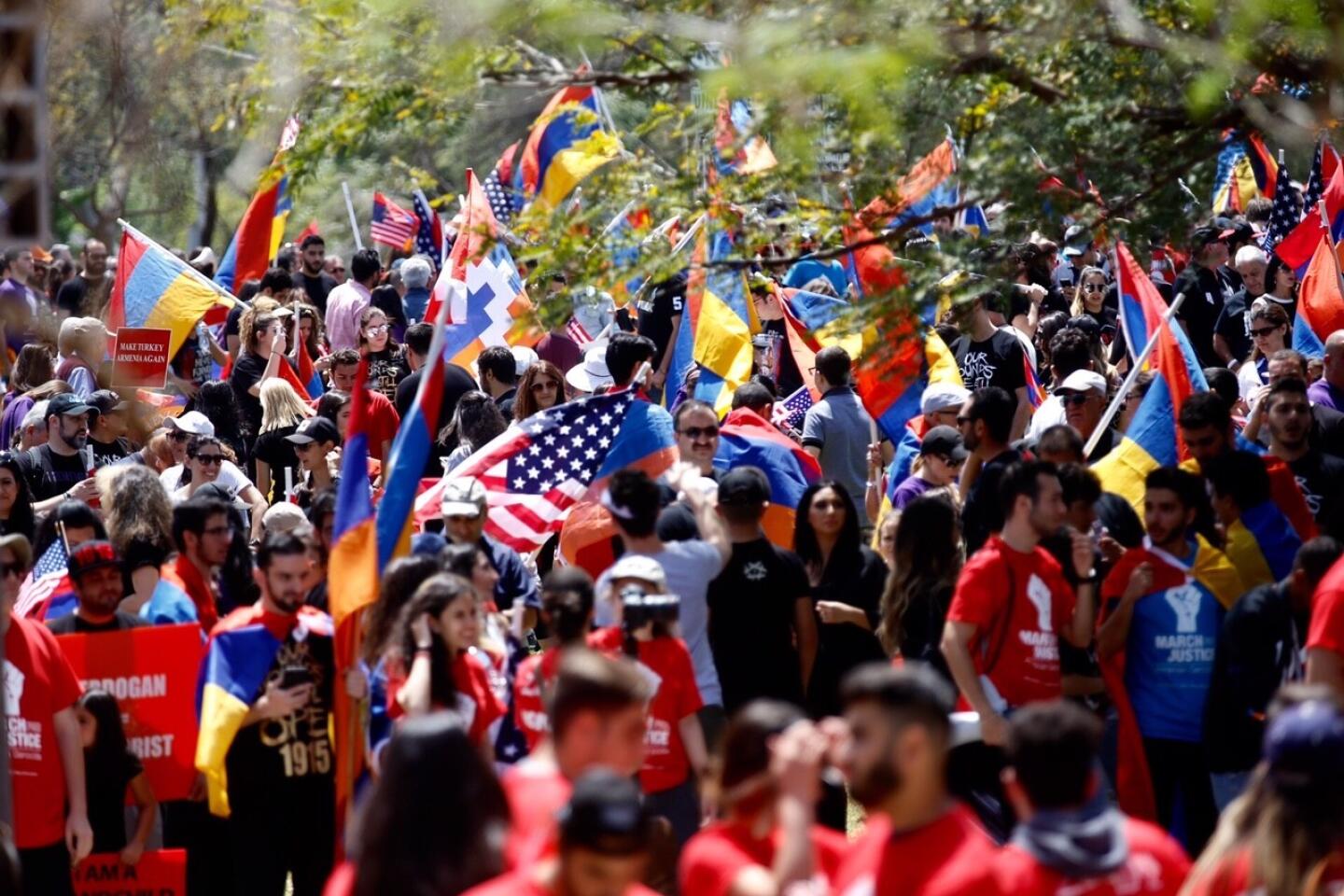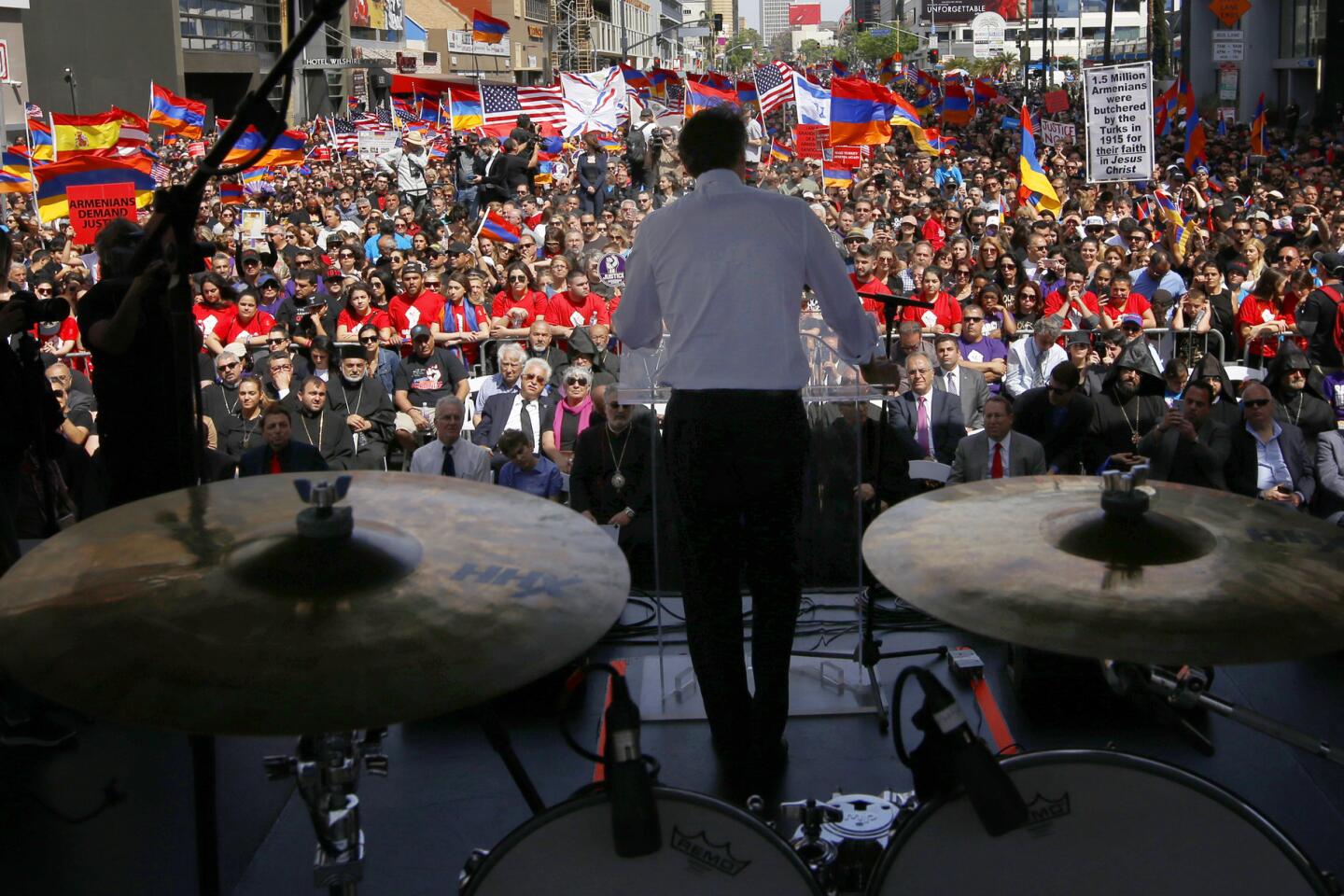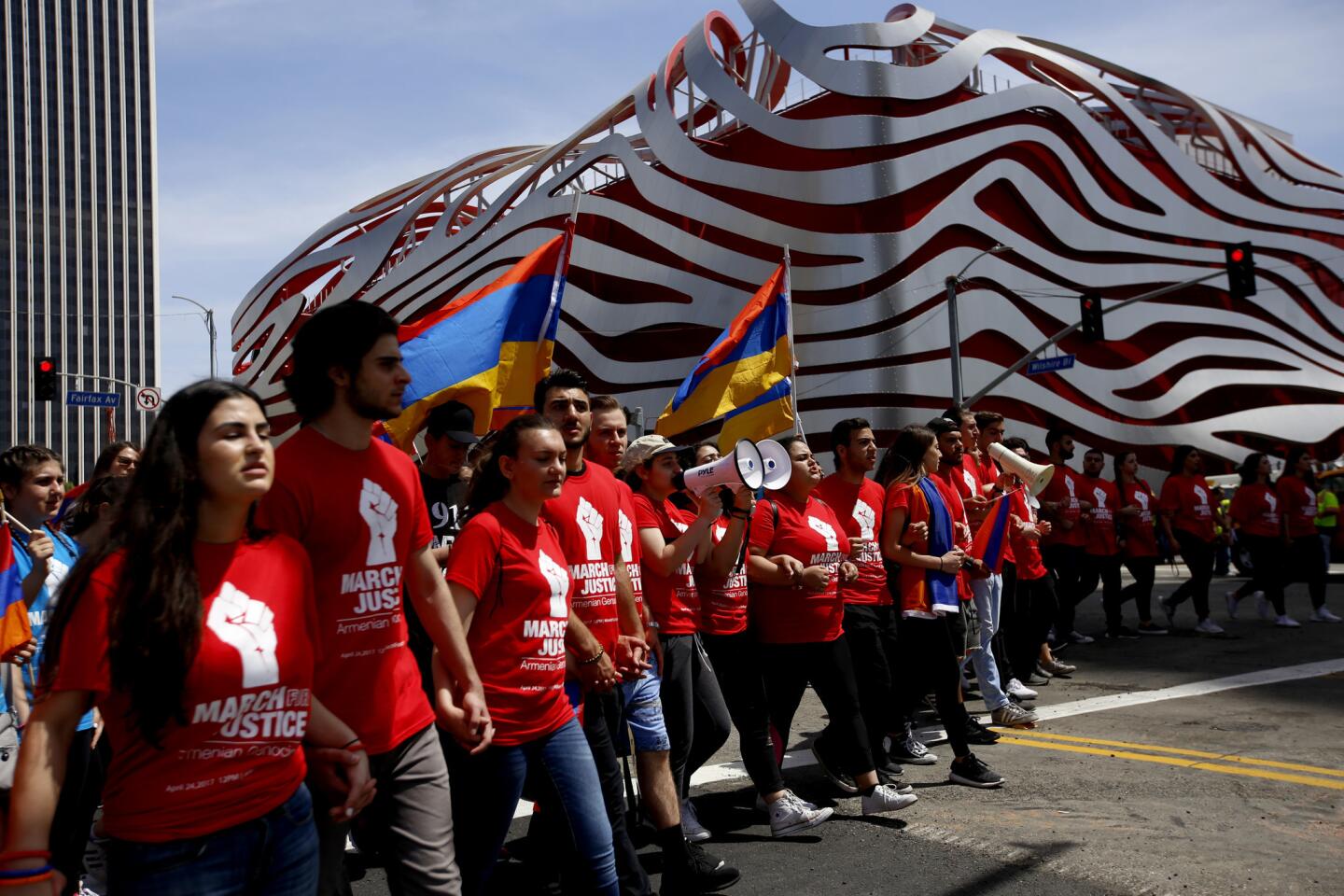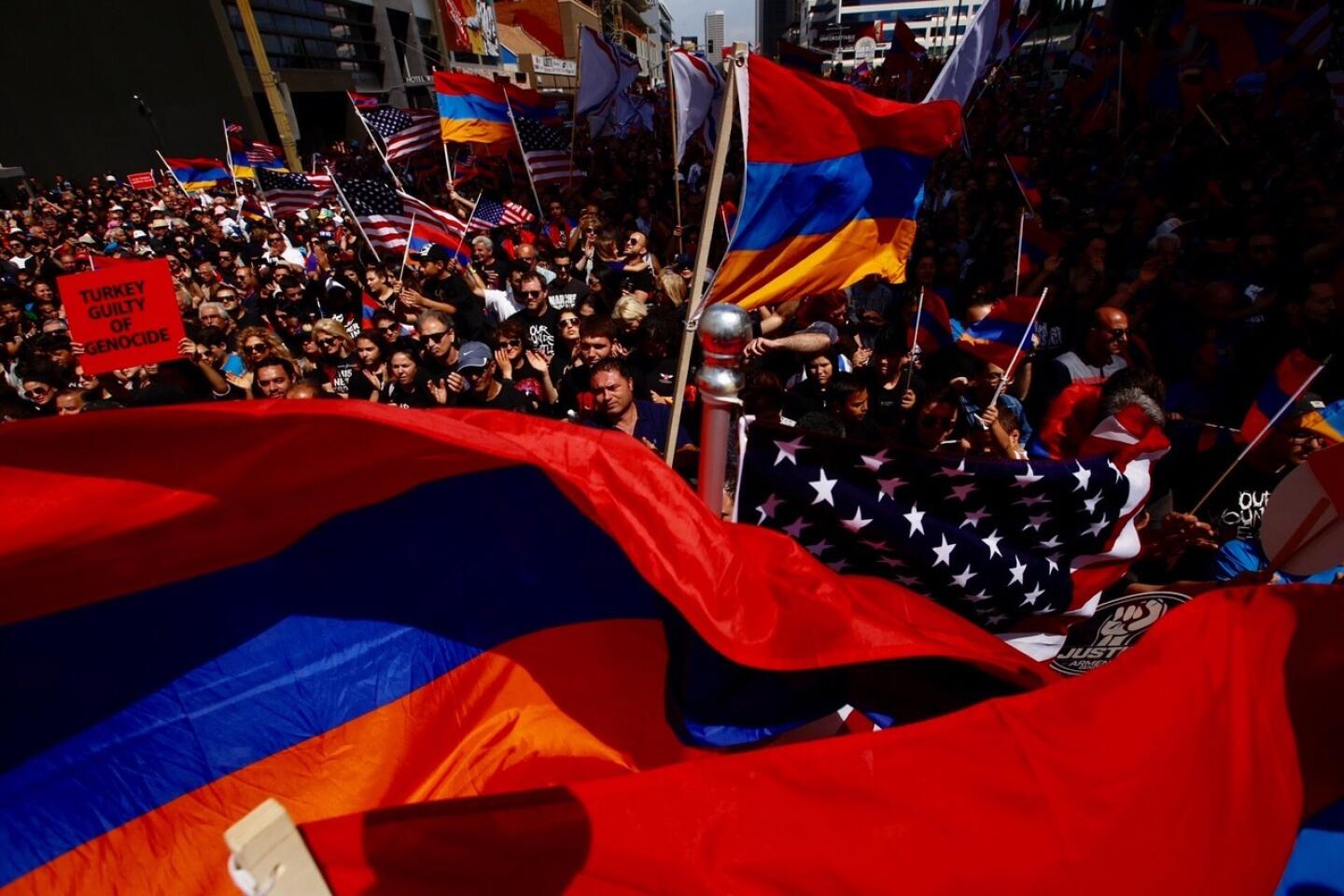Marchers gather to commemorate 102nd anniversary of Armenian genocide
- Share via
Anna Nenedzhyan and her 10-year-old son, John Nenedzhyan, were both eager to begin the 1.4-mile walk to the Turkish consulate.
As they stood underneath a tree to shield their faces from the sun, John gripped an Armenian flag and wore a black shirt with a message calling for justice.
“I enjoy being out here because it shows the world that people are recognizing the Armenian genocide,” the boy said.
They were among tens of thousands of protesters who marched to the Turkish consulate on Wilshire Boulevard on Monday afternoon to commemorate the 102nd anniversary of the Armenian genocide.
As the sea of protesters began arriving outside the Turkish consulate, the energy grew.
“Fight, fight till the end,” some shouted in Armenian.
“Shame on Turkey,” others said.
Young children sat atop their parents’ shoulders as they listened to speeches from California Lt. Gov. Gavin Newsom, U.S. Rep.
People from across generations showed up, many noting that this year’s protest felt more emotional than previous years because of the political debate over immigration.
Throughout the day some called for reparations, while others sought acknowledgment that a crime was committed. The Turkish government disputes that a genocide took place.
“Until justice is served we will continue marching,” said Nora Hovsepian, chair of the Western Region of the Armenian National Committee of America.
The peaceful demonstration was briefly disrupted when participants were confronted by a small group of counter-protesters who came holding a Turkish flag.
Five people were arrested by late afternoon, the Los Angeles Police Department said.
Earlier Monday,
“At a time when Christians and minority communities continue to be in imminent danger and under constant attack, the president’s statement fails to stand up for human rights,” Armenian Assembly co-chairs Anthony Barsamian and Van Krikorian said in a statement.
Experts say part of the reason the White House has historically avoided labeling the killings as a genocide is because of the United States’ close alliance with Turkey — a strategic partner in the fight against the militant group
President Trump declines to use the word 'genocide' in describing Armenian deaths »
California, however, has been at the forefront of formally recognizing the event as a genocide and asking Congress to condemn it as such.
Schiff and U.S. Rep. Dave Trott (R-Michigan) introduced a resolution last month asking Congress to formally recognize the genocide.
And in 2015, Glendale Unified became the first school district in the country to dedicate a day in remembrance of the Armenian genocide.
“We are very proud of our state for taking this position and we will continue to work with our elected officials,” Hovsepian said.
For 77-year-old Peter Gebeshian, commemorating the Armenian genocide is a deeply personal moment — one that he doesn’t try to politicize.
His father fled what is now Turkey in 1915, eventually settling in Egypt. The retired aerospace mechanic said his father rarely spoke of the atrocities he faced.
Gebeshian now participates in the Armenian genocide march every year with his son, also named Peter Gebeshian.
“Coming here with my father every year helps build bridges across generations,” the 42-year-old English teacher at Glendale High School said.
He feels thankful, he added, to live in a community that allows him to embrace his culture.
Southern California — particularly Los Angeles County — is home to the largest Armenian community outside Armenia. According to U.S. census data, more than 200,000 people of Armenian descent live in the Los Angeles area.
Though many factors played a role in the 1915 genocide that killed 1.5 million Armenians, historians typically cite the collapse of the Ottoman Empire as the main factor.
Turkey has said the killings were not premeditated and were a part of a messy global upheaval during World War I.
"Over 100 years ago, the Ottoman Empire undertook a brutal campaign of murder, rape and displacement against the Armenian people that took the lives of 1.5 million men, women and children in the first genocide of the 20th century," Schiff said in a statement.
"Genocide is not a historic relic — even today hundreds of thousands of religious minorities face existential threat from ISIS in Syria and Iraq. It is therefore all the more pressing that the Congress recognize the historical fact of the Armenian genocide and stand against modern-day genocide and crimes against humanity."
Anna Nenedzhyan, who brought her children to Monday’s march, said she hopes that the tragedy of their familial past can be a lesson in empathy and compassion.
“This history is part of [our family] and I want future generations to know about it,” she said.
MORE LOCAL NEWS
A proposed statue with a Chinese face sparks resistance and debate in Monterey Park
This California sheriff bucks trend, calls for 'anti-sanctuary' policies on immigration
UPDATES:
7:55 p.m.: This article was updated throughout with quotes from marchers.
11:30 a.m.: This article was updated with information about a march beginning.
This article was originally published at 3:35 p.m. on April 23.
Sign up for Essential California
The most important California stories and recommendations in your inbox every morning.
You may occasionally receive promotional content from the Los Angeles Times.
